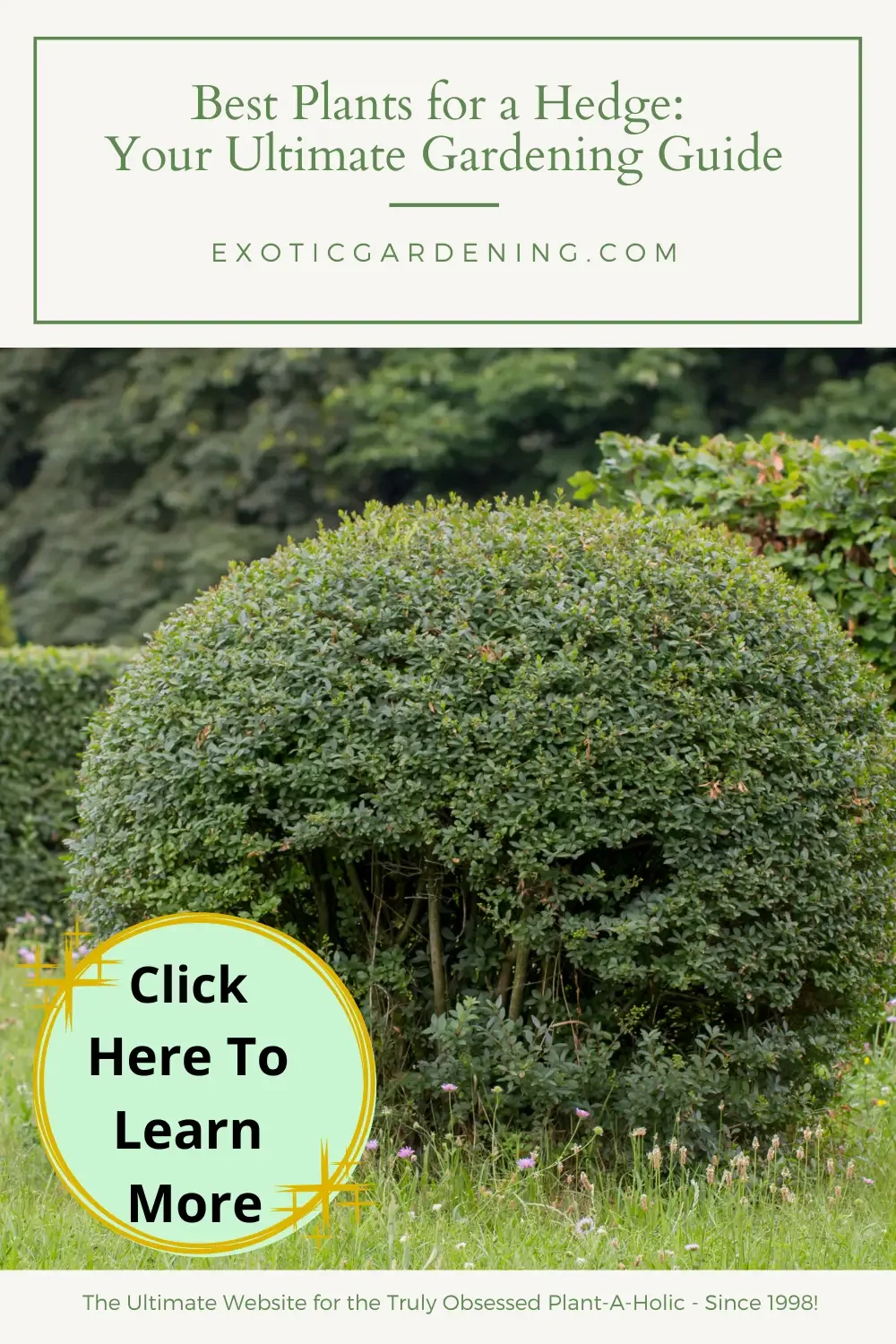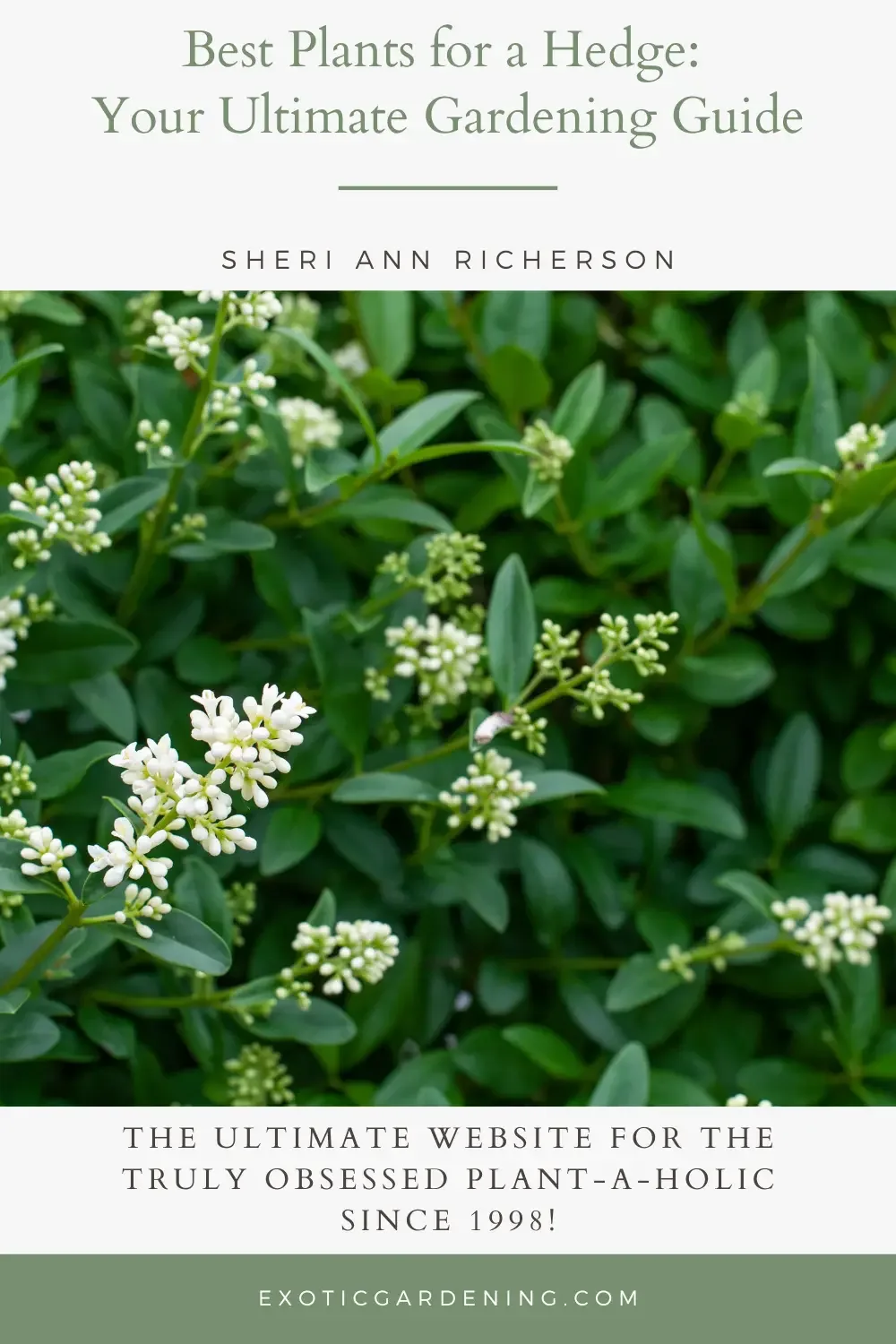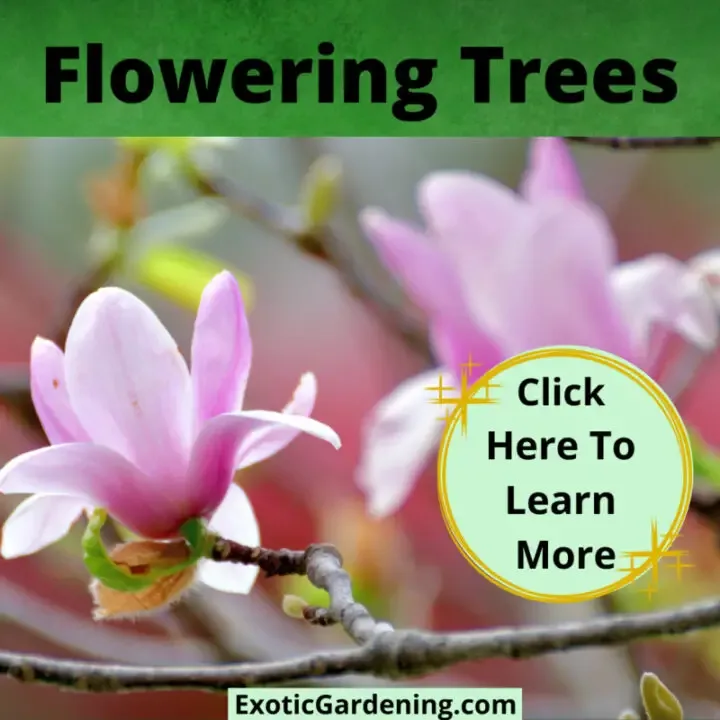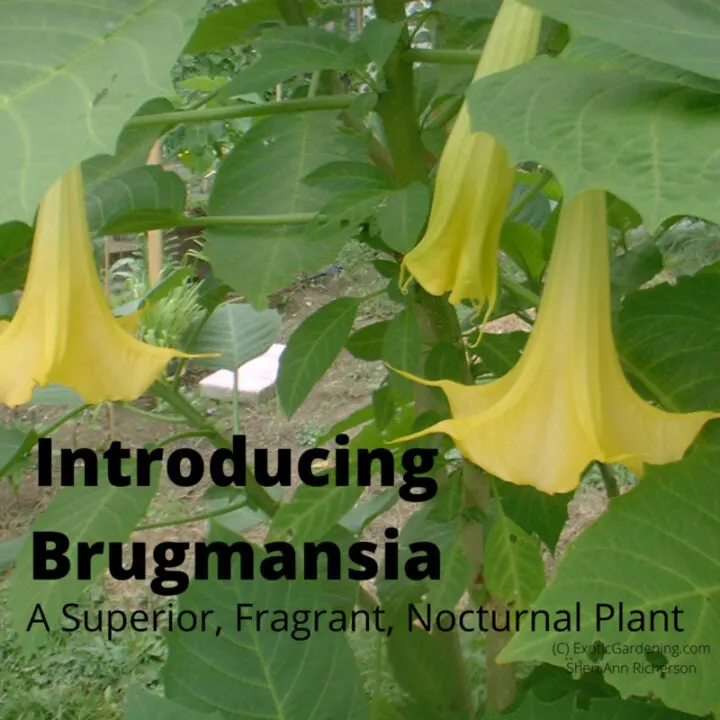When it comes to crafting a gorgeous, private, and practical landscape with the best plants for a hedge, the timeless appeal of a luscious hedge cannot be overstated.
Serving as living walls that delineate and give character to our gardens, hedges are a garden mainstay that contributes greatly to the overall aesthetic appeal of any outdoor space.
Among the vast landscaping options available, both Boxwood and Privet have distinguished themselves as premier choices for hedges.
With their characteristic dense, evergreen foliage and remarkable adaptability to various soil types and conditions, these two humble plants have carved out a niche in the hearts of gardening enthusiasts across the country.
Boxwood: A timeless Classic!
Boxwoods bring an undeniable classic charm to any garden or outdoor space, and you can’t ask for a better plant for your hedge!
This perennial woody shrub, with its small compact foliage and slow, sturdy growth, is the essence of a reliable hedge plant.
But, wait, there’s a lot more to these evergreen beauties that make them the perfect choice for your hedge.
The versatility of a Boxwood's growth is remarkable.
From small, rounded shrubs to dense, tall privacy hedges, Boxwoods can adjust their stature to meet your outdoor requirements.
You can craft them into any shape that suits your design sense and style, either a finely contoured piece of topiary art or a low-lying bush marking your garden.
With Boxwoods, the possibilities are endless!
Boxwood is known for its tolerance.
These plants are incredibly hardy and don’t need a green thumb to thrive.
They can endure winter's snow and frost and summer's full sun pretty well, making them suitable for different climate zones.
Not every plant can boast about that!
The plant's dense, evergreen foliage is another reason they're so great for hedges.
Unlike deciduous shrubs, Boxwoods stay green all year round, providing a perpetual backdrop no matter the season.
Its lush, glossy leaves not only offer visual appeal but also add a sense of depth and structure to your landscaping.
From a maintenance point of view, Boxwoods ask for little.
They are slow growers, which means you won't spend too much time trimming and crafting them into the perfect hedge.
Prune once or twice a year, and your Boxwoods should stay in great shape.
Plus, they're relatively pest-resistant, making them a hassle-free choice for your garden.
Boxwoods also have terrific longevity.
Some of these plants can live to be over 100 years old.
That means, once you've invested in a Boxwood hedge, you've got a piece of landscape architecture that may outlast even you!
Lastly, Boxwoods enhance the ecosystem.
Their dense, thick growth provides a great habitat for many types of birds and small wildlife, promoting biodiversity in your outdoor environment.
In the world of hedge plants, Boxwoods truly carry a badge of distinction.
They offer the perfect blend of aesthetics, tolerance, minimal maintenance, and a long life span that few other hedge plants can match.
The next time you're on a plant hunt for your garden or yard hedge, don’t forget about the humble and hardy Boxwood – a timeless choice that won’t disappoint.
Privet: Hardy and Fast-Growing
There's little that can match the charm and utility of Privet when you're thinking about adding an attractive, functional anchor to your garden landscape.
Its exceptional aspects make it an absolute go-to option, noticeably lifting your garden view to an all-new aesthetic realm.
Additionally, it's an excellent substitute for variants like Boxwoods, especially when you desire something noticeably durable and astonishingly adaptive.
Privet enters as a compelling choice for aspiring gardening enthusiasts as well as long-time green thumbs.
One of the primary reasons to opt for Privet for your garden hedge is its fast growth rate.
Unlike Boxwoods, which grow at a slow to medium pace, Privet proves a racehorse in the plant world, with the potential for up to three feet of growth each year.
This rapid growth pattern can quickly provide a thick, opaque hedge to offer excellent privacy.
In terms of adaptability, Privet does not disappoint.
Unlike some other hedge options, Privet doesn’t require specific soil conditions to thrive.
It grows comfortably in various soil types, including clay, loam, and sandy soils.
Add that to the fact that Privet is comfortable in both full sun and partial shade, and you've got a versatile plant able to accommodate a wide range of garden conditions.
However, it's important to note that while Privet has many admirable qualities, its enthusiasm for growth can be a double-edged sword.
This plant's rapid expansion can make it quite invasive if not properly controlled.
Without regular pruning and maintenance, Privet has been known to spread beyond the intended boundaries of a hedge, potentially encroaching on neighboring spaces.
So, while it offers a lush and rapid hedge solution, gardeners should keep a watchful eye on its growth to prevent it from becoming overly aggressive in the garden.
It is also very difficult to eradicate from your garden once it is thriving, so keep that in mind as well.
Pruning novices, take note—Privet is a dream to shape!
This hedge plant responds exceptionally well to shearing and pruning, allowing you to sculpt your plant into a work of art.
Let your creativity run wild, because whether you’re desiring a neat geometric formation or a whimsical topiary, Privet is the perfect canvas for your garden masterpiece.
Once established, Privet's need for supplemental watering is minimal, apart from an occasional drink during an extended dry spell.
With water conservation being a significant consideration for environmentally conscious homeowners, this makes Privet an ideal choice where sustainability is concerned.
Lastly, one of the unforgettable attributes of Privet is the fragrant beauty of its white spring or summer blossoms.
These white springtime flowers usually attract a host of insects and birds, creating an active and dynamic space in your backyard.
Indeed, Privet offers an unmatched amalgamation of versatility, adaptability, and elegance, all of which make it an outstanding choice for a green and robust addition to your garden hedge.
Whether your goal is to set boundaries, add privacy, diversify your landscape, or create a picture-perfect backdrop, Privet fits the bill brilliantly.
Engage with the earth, encourage your green thumb, and enhance your gardenscape with the wondrous Privet.
After all, there's no better time than now to introduce this incredible plant into your garden’s design.
 Boxwood and Privet: The Perfect Pair for Aesthetic and Practical Garden Hedges
Boxwood and Privet: The Perfect Pair for Aesthetic and Practical Garden Hedges
Both Boxwood and Privet offer an unbeatable combination of aesthetics and practicality that few other plants can match.
Their robust nature, flexibility, and ease of maintenance make them popular choices for a vast range of landscape requirements.
As a testament to nature's versatility, these magnificent plants artfully straddle the line between beauty and utility, serving as both a striking backdrop and a practical addition to any garden.
Whether your garden needs a dose of classic elegance or a functional screen against noise and wind, choosing Boxwood or Privet for your next hedge will undoubtedly yield positive results.
The Ultimate Guide to Woody Wonders: Top Shrubs, Trees, and Woody Plants for Your Landscape
Plants That Grow Under Pine Trees: Complete Guide
Unlock the world of plants that grow under pine trees. Learn care tips and transform your garden beneath the pines.
Best Plants for a Hedge: Your Ultimate Gardening Guide
Discover the best plants for a hedge: Timeless beauty and practicality meet in our top shrub and tree picks. Perfect your landscape today!
















